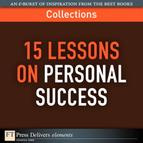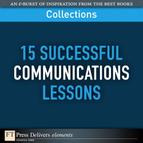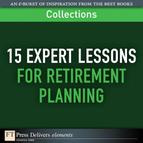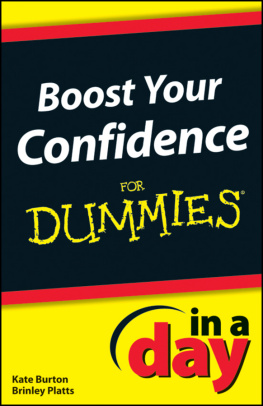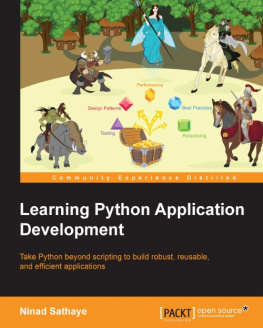15 Ways to Take Control of Your Career Now (Collection)
FT Press Delivers
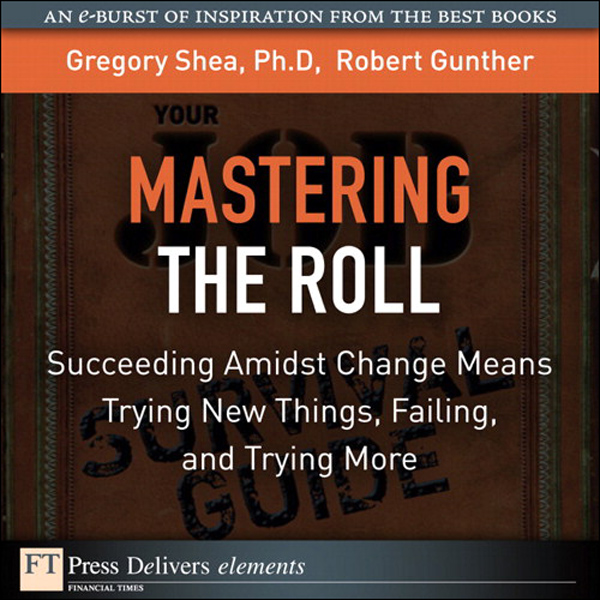
Mastering the Roll
Succeeding Amidst Change Means Trying New Things, Failing, and Trying More
Gregory Shea, PhD, and Robert Gunther
Failure Is the Only Option
Change means trying new things and failing. It means vulnerability and frustration to the point of anger. It means suffering. It means getting comfortable hanging upside down in your boat, under the icy water, without oxygen. It means hanging in there and continuing to function even when you look and feel foolishand then rolling back up. It means failing and then recovering to continue on, and then failing again.
Business is about avoiding mistakes. We all want to appear competent. Success means knowing what to do and getting the job done. So we struggle with the idea that failing is part of the job of change. It is for kids, but once you stop being a toddler, it is no longer cute to fall over while walking down the hallway.
The crew of a traditional boat or ship would define failure as capsizing. No one wants to be captain of the Titanic, as failure is seen from the deck of a capsizing ocean liner. On the ocean liner, the ship goes down only once.
The world looks different from the deck of a kayak. In turbulent environments, capsizing is not only an optionit is an inevitability. You dont win by fighting capsizing because you see it as failure. Rather, you plan to capsize. You practice how to minimize it. You learn to Eskimo roll so that when the water flips you over you know how to recover gracefully. Failure is part of the process. Whitewater kayaks are not particularly stable. This means that they can be flipped more easily, but it also means that they can be rolled back up more easily.
Without an Eskimo roll, however, a trip down a whitewater river can seem similar to capsizing on an ocean liner. If you flip and fail to make your roll in a kayak, you have to pop your spray skirt and swim for shore. It is always wet, often cold. Sometimes fellow paddlers will help, but you typically face a bewildering swim through rushing watersucked under and popped back up, knocked against rocksbefore you find land. Then you have to drag your tail out of the river and empty the water out of your boat, climb back in, put on your spray skirt, and continue on your wayuntil you hit the next wave right around the corner. Such bagels (a roll with a hole in it) typically amount to only an inconvenience. However, in some places on some rivers, such a swim could prove fatal. In any event, it is an exhausting and humiliating process, as fellow paddlers watch from the current. If you do this once or twice, you have a very strong incentive to perfect your roll.
Even if you are a stellar employee, your career will hit periods when you capsize through no fault of your own. You may find yourself in a bewildering new job, with a new boss, in a new organization, or out on the street. You cant avoid this. It is just the way it is in whitewater. Since you cant avoid it, you need to cultivate the ability for quick and efficient recovery from the inevitable disasters. You need to view iteration as a way of life, moving away from seeing your accomplishments as rungs on a career ladder to seeing them as journeys through different rapids or different rivers.
When you shoot rapids, at some point you will find yourself underwater. That fact probably qualifies as the only certainty in a turbulent environment. Clinging to the belief that you can avoid these spills is often more dangerous than accepting them. Recovery skills for turbulent environments are similar to the Eskimo roll in kayaking. Once you have these recovery skills, you can paddle into big water without fear of being capsized or tossed about.
Strategies for Failing Quickly and Recovering Gracefully
Treat Your Career as a Series of Experiments
Instead of moving from success to success, you can view your career as a series of experimentssome of which will fail. When an experiment in a lab does not produce the expected result, the researcher is not usually heartbroken. The failure merely shows one more thing that doesnt work. Look at your career the same way, and you will focus less on perfection today than on building skills for tomorrow. The environment will not permit you to succeed all the time. You can be the best at what you do, but a merger or acquisition can rock your world by completely reshaping your organization. You can be a dynamite programmer in todays language, but the language may change or the work may move to India. Failure merely signals that it is time to launch some new experiments.
The young employee who sees a career as a steady climb will shudder when rungs are missing or the ladder disappears. The experimenter will realize this one route upward didnt work and promptly switch to exploring other routes. This will lead to a more open mind about the possibilities rather than a single-minded devotion to a path that doesnt work. More experienced managers who must always be right and successful will not explore new ways to apply their skills or build new ones.
Minimize the Risk of Failure
First, work your way up to the big water. Start with runs on a Class I river with easy rapids. When you gain the skills from the small, but inevitable, failures (and successes!), you can take on more serious water. Developing yourself takes time and discipline.
Second, be honest about the true risks. People need to know what they are getting into and to be sure they have the skills to meet it. Also, be honest about your own capabilities...and those of others.
Third, find a way to fail that doesnt kill you. Betting the ranch does not make for successful failure. If you want to move in a new direction, figure out what percentage of your time you should invest in this, and treat it like a risky financial investment.
Fourth, make sure that you pack your own chute. Remember the basics:
Negotiate a sound employment contract on the way in, when you are on a roll, and when the labor market is hot.
Keep your personnel file updated. Know what is in it and add concrete laudatory notes whenever possible. If your company wont keep the file, then find someone who will.
Live prudently. Make sure that you have access to money to keep you afloat for at least six months.
Get out and about. Conferences, trade shows, and executive education provide the opportunity to learn as well as to see and be seen.
Visit Monster.com and similar sites to stay abreast of opportunities. Consider checking employment agencies and headhunters before you need them.
Think cell phone, call centers, and Internet and what you can do with those dominant and evolving technologies.
Practice Failing
Unfortunately, you cannot avoid failing or minimize it away, so you also need to improve how you fail. Kayakers spend their winters in swimming pools, practicing rolling their boats, working on offside rolls, and honing their reflexes. Basic technique matters. High-potential employees benefit greatly from receiving true challenges, challenges that will stretch them and give them the possibility of failure. One needs the experience of at least near-failure to practice handling ones self amidst the emotional crosscurrents associated with the specter of failure. These career disasters, planned or unplanned, teach important lessons. People need to know what it feels like when their knuckles turn white.
People learn more from a process of deliberate mistakes than from successes. In a stable environment, learning may prove important, so getting the job done is the focus. Learning and building your skills so that you can better understand and handle your environment matter more. And, like a pilot working in a flight simulator, you learn more if you make more mistakes. You need flexibility of action and resiliency of character. You may not have faced the particular challenge before, but you have faced similar ones. You have felt the fear and have survived. You have developed flexibility.


